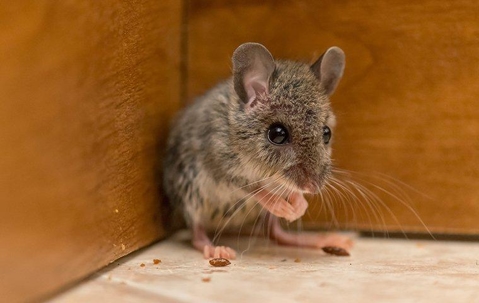Three Things You Are Doing To Attract Rodents To Your Boston Home
With the cold weather and food hard to find, many rodents invade homes looking for a warm, comfortable place to set up camp. In Boston, we are not likely to deal with more exotic rodent varieties, but when it comes to rats and mice, there is plenty to go around. You're likely to run into the following usual suspects trying to make your house their home:
- Norway rats are the biggest rat species in the coastal United States, growing up to 9 1/2 inches long, not counting the tail. They're usually brown with grey or white underside, and you're likely to find them on the lower levels of your home, like basements and in crawl spaces.
- Roof rats are a bit smaller, 6 to 8 inches in size, with brown fur and lighter undersides. You can easily differentiate them from Norway rats by their long, skinny bodies and scaly tails. Roof rats, as the name suggests, are great climbers and are likely to infest attics and roofs.
- House mice are the most common rodent to infest homes. They're usually between 2 and 3 1/2 inches long, not counting the tail, with grey fur and white undersides. House mice multiply rapidly and can become a major problem in a very short time.
- Deer mice are a bit smaller than house mice, averaging 2 to 3 inches, and sport brown fur with white undersides and feet, similar to a deer. Deer mice are not very interested in sharing their space with humans but will invade outbuildings and garages to overwinter.
- Squirrels are the other common rodent you might see invading your property. Common tree squirrels are 6 to 15 inches long with grey fur and white undersides.
Let's take a look at ways to keep rodents out of your house and learn how to get rid of rodents if they're already there and where to find reliable pest control in Boston if DIY approaches fail.
Do You Know How To Spot Rodent Activity In Your Boston Home?
There is no better advantage in your fight against a rodent infestation than being able to spot the signs of Boston rodents in your house early. Watch for:
- Gnaw marks on the walls and legs of the furniture.
- Rodent droppings.
- Oily rub marks on the walls.
- The odor of mouse urine.
- Damaged food.
- Noises in the attic or walls.
Rodents multiply fast, so it's important to act fast if you spot signs of an infestation and get started on effective rodent control services in Boston.
Three Problems Rodents Cause In Boston Homes
Once in your house, rodents start making themselves at home quickly, bringing up several issues with their presence. They contaminate stored food and surfaces they travel on and carry a number of infectious diseases, such as tularemia, salmonellosis, jaundice, and cowpox virus. Their teeth grow non-stop, and in order to keep them in check, all rodents will gnaw on walls, furniture, legs, and anything else they can get their teeth on in your home.
Easy Rodent Prevention Tips You Should Be Utilizing
Keep the following simple tips in mind to prevent a rodent infestation:
- Don't store firewood next to the house.
- Seal cracks and gaps in the walls bigger than 1/4 inch.
- Store human and pet food in sealed containers.
- Keep trash in tightly closed trash cans and dispose of it regularly.
Rodents are a chore to get rid of once they set up a colony in your house, making prevention the most reliable rodent control approach for most homeowners.
Why It Is Always Best To Call The Rodent Control Professionals
At Urbanex, we've been taking care of rodents and other pest problems for Boston residents for over 20 years.
If you think you have a rodent infestation, give us a call today to learn more about our residential and commercial pest control services in Boston.
Request Your Free Inspection
Complete the form below to schedule your no obligation inspection.

